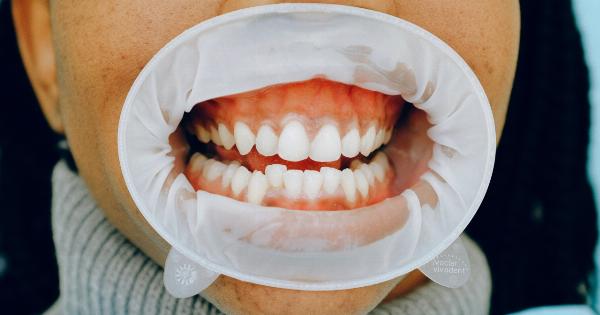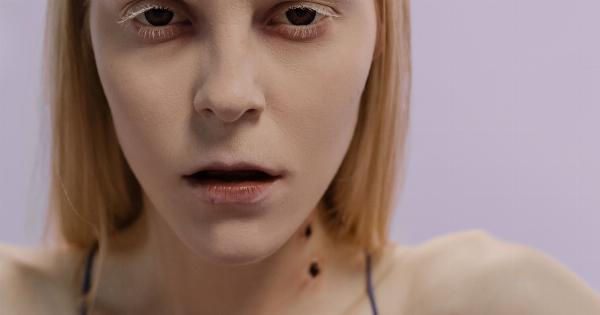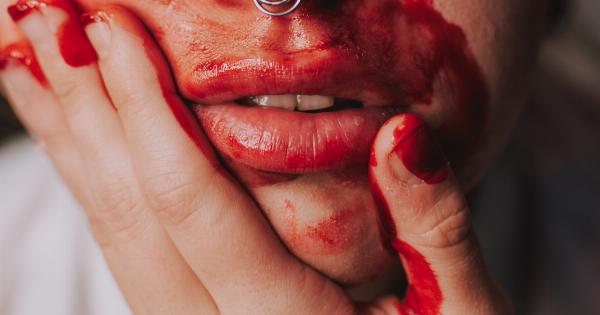Have you experienced a strange metallic taste in your mouth that just won’t go away? This can be a disturbing sensation that can interfere with your enjoyment of food and drinks.
There are many reasons why you might be experiencing this taste, ranging from harmless to serious. Here are some possible causes of a metallic taste in the mouth:.
1. Medications and supplements
If you take certain medications or supplements, you may experience a metallic taste in your mouth as a side effect. Some common culprits include antibiotics, antidepressants, and blood pressure medications.
These substances can affect the way your taste buds perceive the flavors in your food and drinks, leading to a metallic taste.
2. Oral hygiene products
Using certain oral hygiene products, such as mouthwashes, toothpaste, and dental floss, can also cause a metallic taste in your mouth. This may be due to the presence of certain chemicals or ingredients that react with your saliva or mouth tissues.
If you notice this taste after using a new product, try switching back to your previous brand or consulting with your dentist.
3. Infections and inflammation
Infections and inflammation in your mouth or throat can also lead to a metallic taste. For example, if you have a sinus infection or a cold, your sense of taste may be altered temporarily.
Similarly, if you have gum disease or a mouth ulcer, the bacteria or immune response may trigger a metallic taste sensation.
4. Nutrient deficiencies
Your sense of taste is linked to your nutrient intake, so deficiencies in certain vitamins and minerals can affect it. For example, if you are low in zinc or vitamin B12, you may experience a metallic taste in your mouth.
These nutrients are important for the proper functioning of taste buds and the regeneration of mouth tissues.
5. Dehydration and dry mouth
If you are not drinking enough water or have a dry mouth, your saliva may become thicker and more acidic, leading to a metallic taste. This is because saliva helps lubricate your mouth and neutralize any acidic or bitter substances that enter it.
Dry mouth can be caused by medications, medical conditions, or breathing through your mouth.
6. Neurological issues
In rare cases, a metallic taste in the mouth may be a sign of a neurological problem. These issues can affect the way your brain interprets signals from your taste buds and nerves, leading to unusual sensations.
For example, if you have Bell’s palsy or multiple sclerosis, you may experience a metallic taste as a symptom.
7. Pregnancy
Some women experience a metallic taste in their mouth during pregnancy, especially in the early stages. This is thought to be due to hormonal changes and the body’s increased sensitivity to certain flavors.
The taste usually goes away after the first trimester.
8. Exposure to toxins
If you are exposed to certain toxins or chemicals, such as lead or mercury, you may experience a metallic taste in your mouth. These substances can affect the way your taste buds function and lead to other symptoms, such as headaches and nausea.
If you suspect you have been exposed to any toxic substances, seek medical attention immediately.
9. Dental appliances
If you wear dentures, braces, or other dental appliances, you may experience a metallic taste in your mouth due to the materials used. For example, some denture adhesives contain zinc, which can leach into your mouth and cause a metallic taste.
Similarly, some metal braces may rub against your tongue and trigger the sensation.
10. Psychological factors
In some cases, a metallic taste in the mouth may be due to psychological or emotional factors. For example, if you are experiencing anxiety or stress, your body may release certain chemicals that can affect your taste buds and lead to a metallic taste.
Similarly, if you have a phobia of certain foods or flavors, you may experience this sensation when exposed to them.
If you are experiencing a metallic taste in your mouth, it is important to try and identify the underlying cause. In some cases, this sensation may be harmless and temporary, but in other cases, it may be a sign of a more serious condition.
Consult with your doctor or dentist if the taste persists or is accompanied by other symptoms.



























